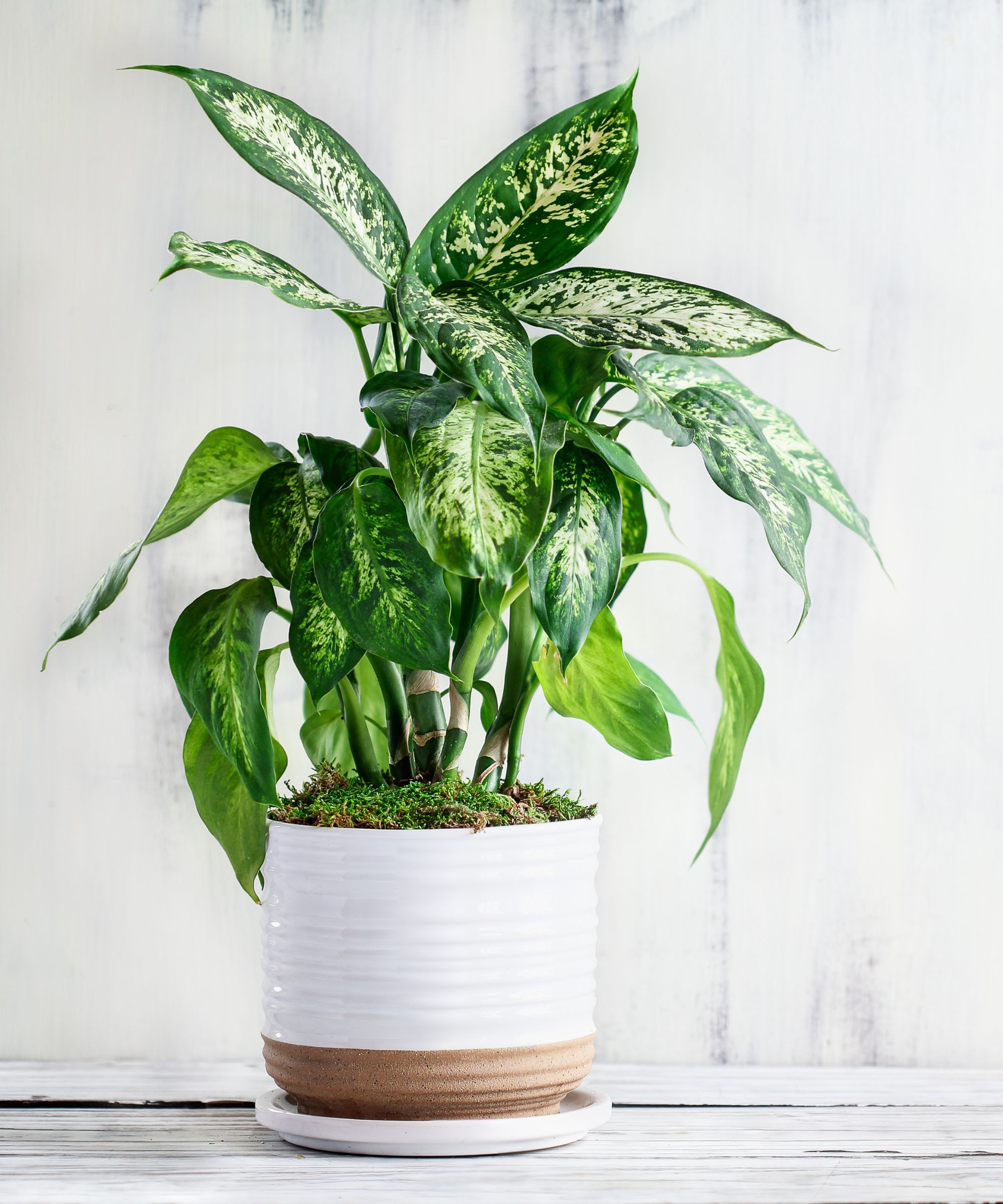
Olympic swimmer Katie Ledecky is currently enjoying sucsess on the world stage in Paris, but we're just as interested in her home, or, more specifically, her garden. Known as one of swimming's 'all-time greats,' the DC-born athlete resides in Gainesville, Florida, where she spends her time unwinding in the same way as us: in the garden.
Self-labeling herself as a 'gardener,' Ledecky took to Instagram to show the plants she's grown in her backyard – including a Dieffenbachia seguine, famously one of the hardest plants to maintain.
Dieffenbachia seguine, more commonly known as dumb cane (as well as leopard lily and tuftroot) is a species of Dieffenbachia, a flowering aroid plant of the family Araceae. It is characterized by its large, shiny, green leaves, meaning it's often used as an indoor plant (despite Ledecky showing hers outside). However, despite its beauty, experts warn that the Dieffenbachia seguine plant is one of the hardest to keep alive and healthy. This is when following professional tips becomes crucial.
According to James Mayo, plant expert, and marketing executive at biophilic design firm Exubia, Dieffenbachia seguine, is the sixth hardest plant to maintain, coming after the Peace Lily, Aloe Vera, and a Fiddle Leaf Fig. It's certainly possible to keep these plants alive, as none other than Ledecky proves; however, unsurprisingly, sucsess comes down to the right amount of water and sunlight.
'Quite often, houseplant enthusiasts water their plants on a schedule, but this won’t account for the variance in temperature and light throughout the seasons. Instead, every other day, dip your index finger knuckle deep into the soil. If the soil is moist, then it doesn’t need any more water; if it’s dry, then it's time for a top-up,' Mayo explains. 'This method will ensure your plant consumes water as and when it needs it.'
Secondly, while many plants love sunlight, we should ensure they don't receive too much exposure. 'We’d recommend placing your houseplant in the brightest spot possible. While some plants are labeled as shade-loving, the reality is that indoors, it's very unlikely your plant will get too much light.'

'In our 50 years of experience in plant care, one of the key things we’ve learned is that although some people may say they have ‘green fingers,’ it's usually due to the fact they’ve put their plant in the brightest spot possible.'
Plus, while this species is often seen inside, experts suggest it's not a bad thing to follow Ledecky's lead and keep our Dieffenbachia in our backyard. 'Some plants such as Dieffenbachia, also known as dumb cane, produce substances that can be damaging to certain flooring materials,' warn designers at Tapi Carpets & Floors. 'The acidic substances in some plant sap can etch or stain surfaces like carpets or certain types of natural wood. So, if you've got a Dieffenbachia plant and can see some damage appear on your floors, the culprit is most likely to be this plant.'
Alternatively, a faux Dieffenbachia, much like this one from Wayfair, allows us to get the Ledecky-inspired look without having to worry about watering or our plant posisiton.
Thisartificial potted green Dieffenbachia Tree by Vickerman takes nature indoors with its realistic features and fine details you will enjoy for years ahead (without any watering worries).
If we can't keep our plant outside, we should look to elevate it from the floor using stands, risers, or plant stands to allow the air to circulate more freely around its base. 'This helps prevent stagnant air from accumulating, reducing the risk of moisture buildup and potential damage to floors.'
In the meantime, we can only hope Ledecky arranged for her plants to be sufficiently cared for until her return to Florida.







